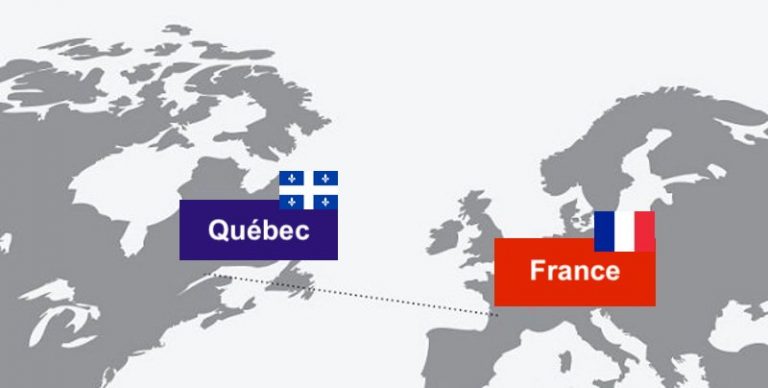
On 25 June this year, a first virtual mission was organised in Paris between Nadine Girault, Minister for International Relations and the Francophonie and Minister for Immigration, Francization and Integration, and Cédric O, Secretary of State to the Minister for the Economy and Finance and the Minister for Action and Public Accounts, in charge of the Digital Agenda. They took this opportunity to take stock of the work undertaken by Quebec and France in the digital field and more specifically in artificial intelligence.
The Minister and the Secretary of State welcomed the establishment of the Montreal International Centre of Expertise in Artificial Intelligence (MICIA), one of the two centres of expertise, along with the one in Paris, of the Global Partnership on Artificial Intelligence (GPIA), whose secretariat is provided by the OECD.
They also wished to reiterate their willingness to contribute, together with the founding partners of the PMIA, to the responsible development and human-centred use of artificial intelligence, while respecting human rights, fundamental freedoms and their common democratic values. They welcomed the organization, by CIEIMIC, of the first international meeting of the PMIA multi-stakeholder expert group in Montreal in December 2020. Québec will participate actively in this new international partnership through a Canada-Québec Memorandum of Understanding, modelled on the UNESCO agreement.
At the end of the meeting, the ministers highlighted the three-year agreement between Université Laval (more specifically the Observatoire sur les impacts sociétaux de l’intelligence artificielle-OBVIA), the ENS and the Abeona Foundation, which allows for the invitation of a professor from OBVIA to lead the Abeona-ENS-OBVIA Visiting Research Chair in Artificial Intelligence and Social Justice, more specifically through the prism of equity, diversity and inclusion.
For one year, he will be able to develop work on artificial intelligence and social justice and interact with researchers from the Paris and Quebec ecosystems in the fields of artificial intelligence, human and social sciences and health.
Quebec-France cooperation
- During their meeting, Mr. O. and Ms. Girault discussed possibilities for cooperation between the Paris and Montreal centres of expertise of the PMIA.
- OBVIA and the ENS offer a research ecosystem bringing together a vast network of teaching and research institutions, various non-governmental organizations, businesses, government players and various groups from Quebec, Canada, France and internationally.
- The guest chair will allow the selected professor to participate in various seminars and symposiums, both in France and in Quebec, including the Semaine numériQC.
- Digital technology is at the heart of several Franco-Quebec initiatives in various fields, such as :
- France-Quebec digital pathway for incubators and accelerators for startups;
- Seminars on pedagogical innovation in education ;
- Work on the online discoverability of French-language cultural content under the responsibility of the Ministries of Culture in France and Quebec;
- Exchanges on government digital transition, telework and
digital literacy in the public service.
- Québec and its metropolis, recognized as a world innovation pole, now has an ecosystem of more than 300 researchers and doctoral students, 15,000 experts and more than 11,000 students in fields related to artificial intelligence. This constitutes one of the world’s largest concentrations of researchers in deep learning.
- More broadly, Quebec has a pool of 91,000 information and communications technology specialists working in nearly 5,000 organizations.
- The next alternating First Ministers’ Meeting (FMM) is scheduled to take place in Quebec City in 2021.
Translated from International : Le Québec et la France poursuivent leur partenariat stratégique en intelligence artificielle









